The dimensions of a growing child’s eye are quickly adjusted to the focusing of the dominant spectral band of
illumination. It is the prevailing type of lighting that plays an important role in the formation of the eyeball in
childhood. Everyday use of lamps with a predominance of the red component in the spectral composition can lead to
elongation of the eye (myopia) in the most crucial period of development. These changes may be irreversible, among other
things. In the paper various parameters of the eyes of quail chicks were measured at different age points during the
maturation period. The method of acoustic microscopy was used for the study. Measurements were carried out for two
groups of birds. Thefollowing were takenas everyday lighting: incandescent lampin the first case, and LED lamp with a
dominant spectral band of 525–700 nm in the second case. The obtained results show the disadvantages of incandescent
lamp using as everyday lighting during the formation of the adolescent’s eyeball.
Key words:
eye, children’s myopia, everyday lighting, Japanese quail, acoustic microscopy
DOI: 10.31857/S0235009222030088
Cite:
Trofimova N. N., Petronyuk Y. S., Guryeva T. S., Mednikova E. I., Zak P. P.
Vliyanie spektralnoi sostavlyayushchei povsednevnogo osveshcheniya na formirovanie struktur glaza yaponskogo perepela coturnix japonica
[Influence of spectral componentsof dayly lighting on eye structures formation for japanese quail coturnix japonica].
Sensornye sistemy [Sensory systems].
2022.
V. 36(3).
P. 226–233 (in Russian). doi: 10.31857/S0235009222030088
References:
- Dontsov A.E., Vorobjev I.A., Zolnikova I.V., Pogodina L.S., Potashnikova D.M., Seryoznikova N.B., Zack P.P. Photobiomodulating effect of low-dose led blue range (450 nm) radiation on mitochondrial activity. Sensornye sistemy [Sensory systems]. 2017. V. 31 (4). P. 312–321 (in Russian).
- Zak P.P., Ostrovsky M.A. Potential danger of light emitting diode illumination to the eye, in children and teenagers. Light & Engineering. 2012. V. 20 (3). P. 5–8.
- Zak P.P. Osnovanija ogranichenija cvetovoj temperatury svetodiodnogo osveshhenija v obrazovatel’nyh, doshkol’nyh i lechebnyh uchrezhdenijah [Bases for limiting the color temperature of LED lighting in educational, preschool and medical institutions] Materialy IX Mezhdunarodnogo Foruma po svetodiodnym tehnologijam [Proc. IX Intern. Forum on LED Technol.] Moscow: OOO “Messe Frankfurt RUS”, November 9–11, 2015. P. 28–32 (in Russian).
- Zak P.P., Serezhnikova N.B., Trofimova N.N., Pogodina L.S., Gur’eva T.S., Dadasheva O.A. Photoinduced changes in subcellular structures of the retinal pigment epithelium from the japanese quail Coturnix japonica. Biochemistry. 2015. V. 80 (6). P. 785–789.
- Zak P.P., Petronjuk Ju.S., Hramcova E.A., Trofimova N.N., Misjakov A.N., Gur’eva T.S., Dadasheva O.A., Levin V.M. Akustiko-mikroskopicheskoe issledovanie vozrastnyh izmenenij struktur glaza japonskogo perepela Сoturnix japonica [Acoustic-microscopic study of age-related changes in the eye structures of the Japanese quail Coturnix japonica] Aktual’nye voprosy biologicheskoj fiziki i himii [Topical issues of biological physics and chemistry]. 2019. V. 4 (2). P. 233–236 (in Russian).
- Karpenko I.V., Timakov V.V. Vision problems in schoolchildren. Meditsinskaya sestra [Medical nurse]. 2016. № 1. P. 24–25 (in Russian).
- Pashkov B.A. Biofizicheskie osnovy kvantovoj mediciny. [Biophysical foundations of quantum medicine] Metodicheskoe posobie k kursam po kvantovoj medicine [Methodological guide to courses in quantum medicine]. Moscow: ZAO “MILTA-PKPGIT”. 2004. P. 1–116 (in Russian).
- Petronyuk Yu.S., Trofimova N.N., Zak P.P., Khramtsova E.A., Andryukhina O.M., Andryukhina A.S., Ryabtseva A.A., Guryeva T.S., Mednikova E.I., Titov S.A., Levin V.M. Study of Eye Pathologies in the Japanese Quail Biomodel Coturnix japonica. Russian Journal of Physical Chemistry B. 2022. V. 1616 (1). P. 97–102. https://doi.org/10.1134/S1990793122010249
- Sigaeva A.O., Serezhnikova N.B., Pogodina L.S., Trofimova N.N., Zak P.P. Vozrastnye izmenenija sosudistoj obolochki glaza jeksperimental’noj zhivotnoj modeli: japonskij perepel Coturnix japonica [Age-related changes in the vascular membrane of the eye of an experimental animal model: Japanese quail Coturnix japonica]. Materialy Rossijskogo obshhenacional’nogo oftal’mologicheskogo foruma [Materials of the Russian National Ophthalmological Forum]. Moscow: “Aprel”. 2015. V. 2. P. 906–910 (in Russian).
- Araújo A.R., Piancastelli A.C.C., Pinotti M. Effects of lowpower light therapy on wound healing: LASER x LED. An. Bras.Dermatol. 2014. V. 89. N 4. P. 616–623.
- Foster F.S., Zhang M.Y., Duckett A.S., Cucevic V., Pavlin Ch.J. In vivo imaging of embryonic development in the mouse eye by ultrasound biomicroscopy. Invest. Ophtalmol.Vis.Sci. 2003. N 44. P. 2361–2366. https://doi.org/10.1167/iovs.02-0911
- Coleman D.J., Silverman R.H., Chabi A., Mark J Rondeau, K Kirk Shung, Jon Cannata, Harvey Lincoff. High resolution ultrasonic imaging of the posterior segment. Ophalmology. 2004. V. 111. N 7. P. 1344–51.
- Hill C.R., Bamber J.C., ter Haar G.R. Physical Principles of Medical Ultrasonics. John Wiley & Sons, Ltd. 2004. 528 p. https://doi.org/10.1002/0470093978
- Llombart C., Nacher V., Ramos D., Luppo M., Carretero A., Navarro M., Melgarejo V., Armendol C. Morphological characterization of pecteneal hyalocytes in the developing quail retina. J Anat. 2009. N 3. P. 280–291. https://doi.org/10.1111/j.1469-7580.2009.01117.x
- Nakamura Y., Kusano K., Nakamura K., Kobayashi K., Hozumi N., Saijo Y., Ohe T. A new diagnostic feasibility for cardiomyopathy utilizing acoustic microscopy. World Journal of Cardiovascular Diseases. 2013. N 3. P. 22–30. https://doi.org/10.4236/wjcd.2013.31006
- Pavlin C., Easterbrook M., Hurwitz J., Harasiewicz K., Foster F.S. Am. J. Ophthalmol. 1993. V. 116. P. 854–857. https://doi.org/10.1016/s0002-9394(14)73207-6
- Pavlin C.J., Harasiewicz K., Sherar M.D. Clinical use of ultrasound biomicroscopy. Ophalmology. 1991. V. 98. N 3. P. 287–295.
- Presby J.A., Scott E.M., Norman K.N. Hoppes Sh.M., Tizard I. Normative ocular data for juvenile and adult Japanese quail (Coturnix japonica). Veterinary Ophthalmology. 2020. N 23. P. 526–533.
- Wisely C.E., Sayed J.A., Tamez H., Zelinka Ch., AbdelRahman M.H., Fischer A.J., Cebulla C.M. The chick eye in vision research: an excellent model for the study of ocular disease. Prog Retin Eye Res. 2017. V. 61. P. 72–97. https://doi.org/10.1016/j.preteyeres.2017.06.004
